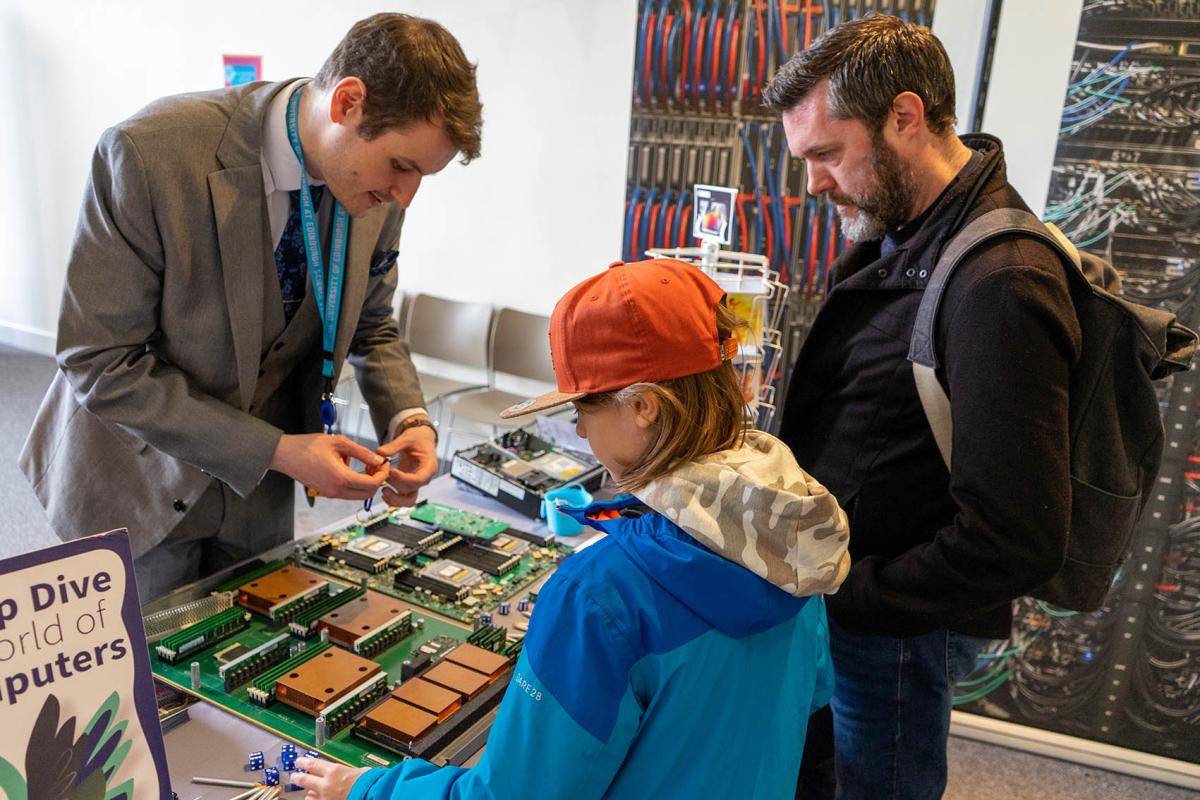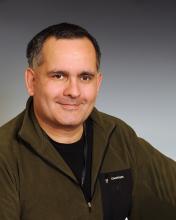EPCC at the Edinburgh Science Festival 2023
Edinburgh is said to have started the modern science festival in 1989. Thirty-four years later, the theme for this year’s Edinburgh Science Festival (ESF), which ran from the 1–16 April, revolved around the themes of experimentation, innovation, creativity, curiosity, and invention.
Various venues across Edinburgh provided platforms for science-based activities and exhibitions over this period. EPCC, under the University of Edinburgh banner, participated in the “Discover our Science” set of activities that took place at the Learning Centre of the National Museum of Scotland (NMS). The NMS lies in our own "back yard", close to the Bayes Centre where most of EPCC resides.
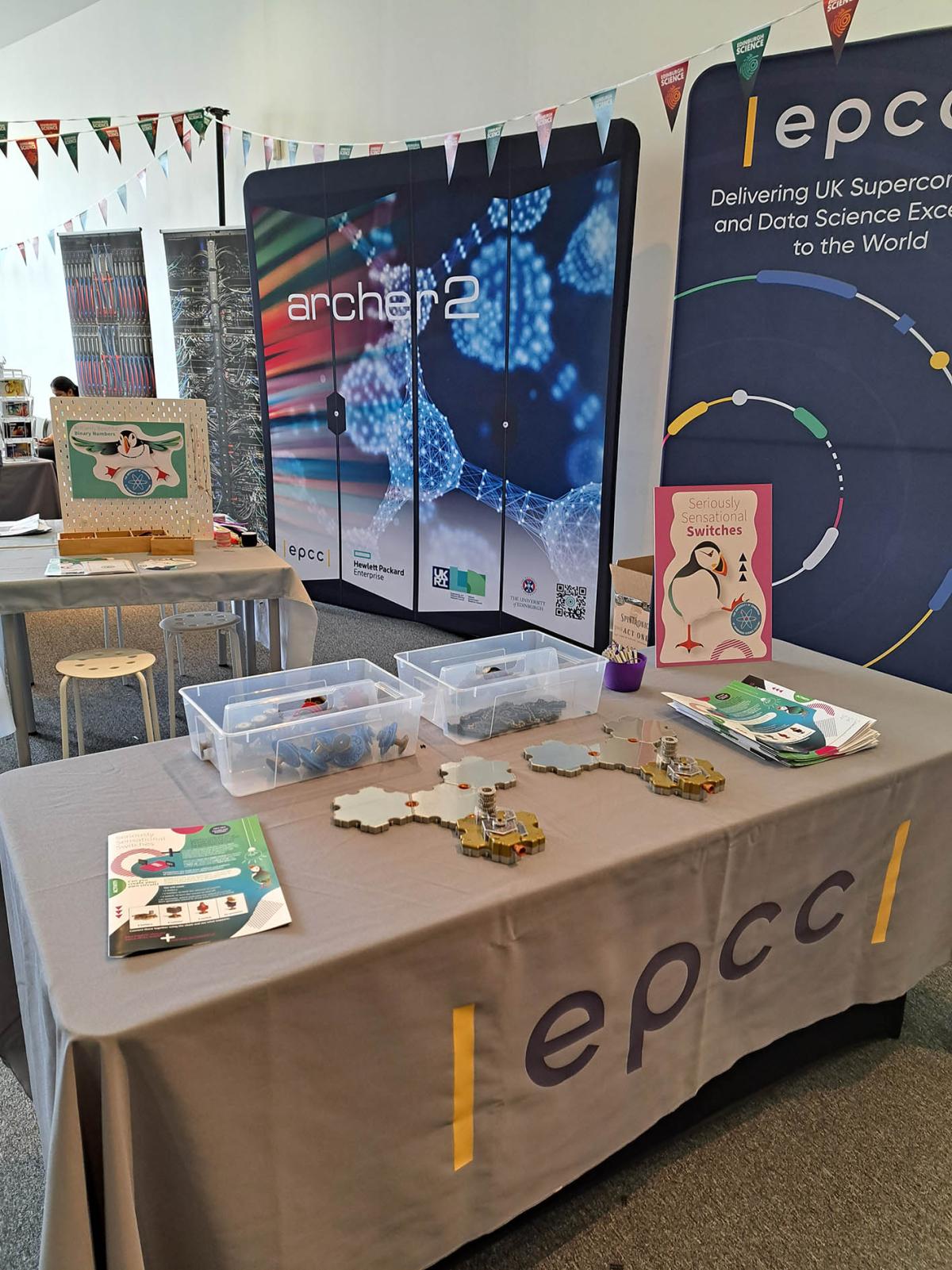
The proximity of the venue meant that we were able to maximise the involvement of EPCC staff at the event, with sixteen members of staff involved over the four days of our participation. This included four or five members of staff on our stand, which offered three main activities with a loose narrative linking them together.
We used the artistic creation of a bracelet to introduce the base language that computers use. Participants could encode the initials of their name in binary using ASCII and take their bracelet away with them as a permanent reminder.
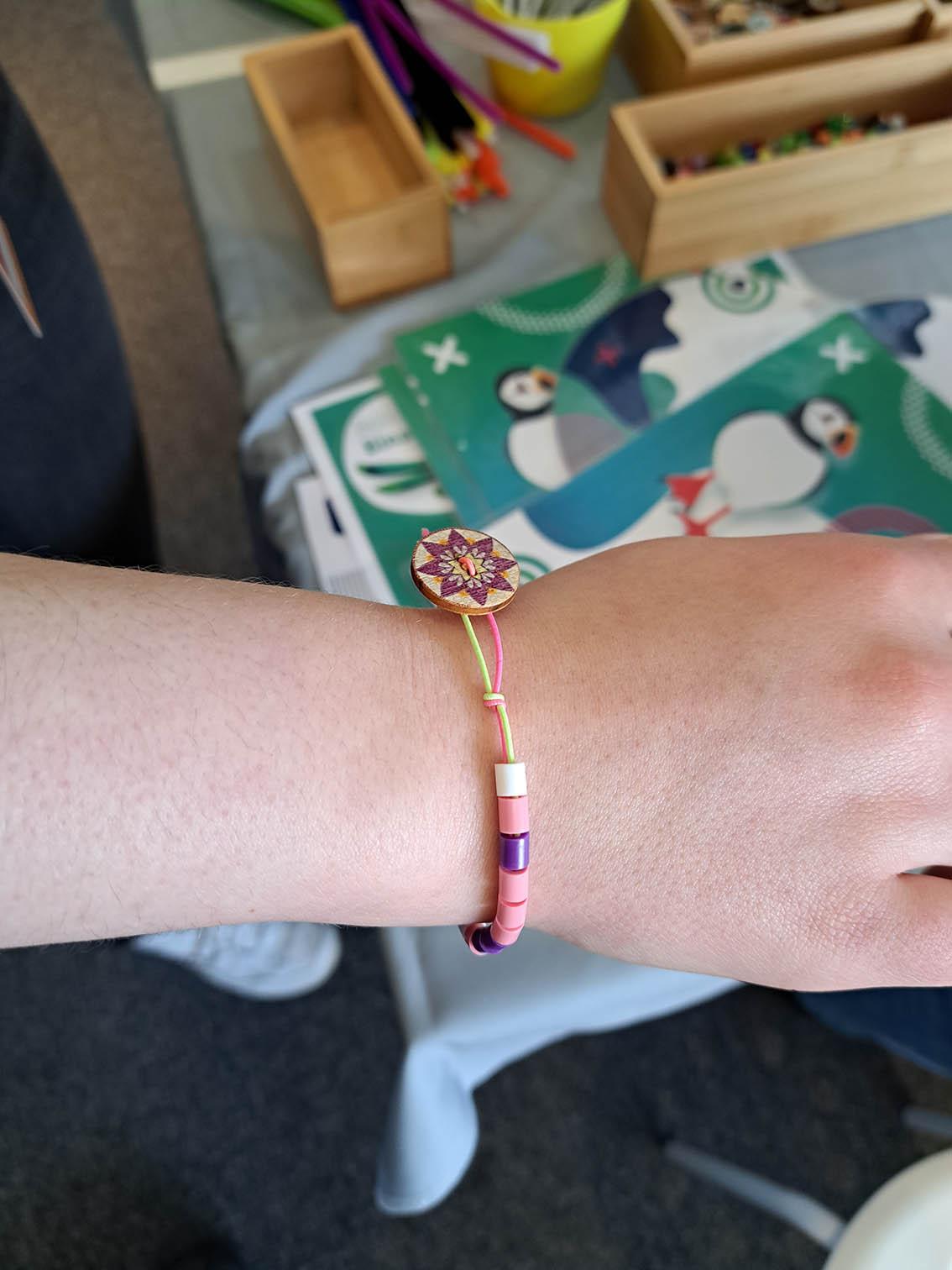
Moving up a level, we employed Spintronics, which allows electronic circuits to be expressed using mechanical components. Using basic components we showed how AND and OR gates could be constructed, demonstrating the basis for more complex circuitry.
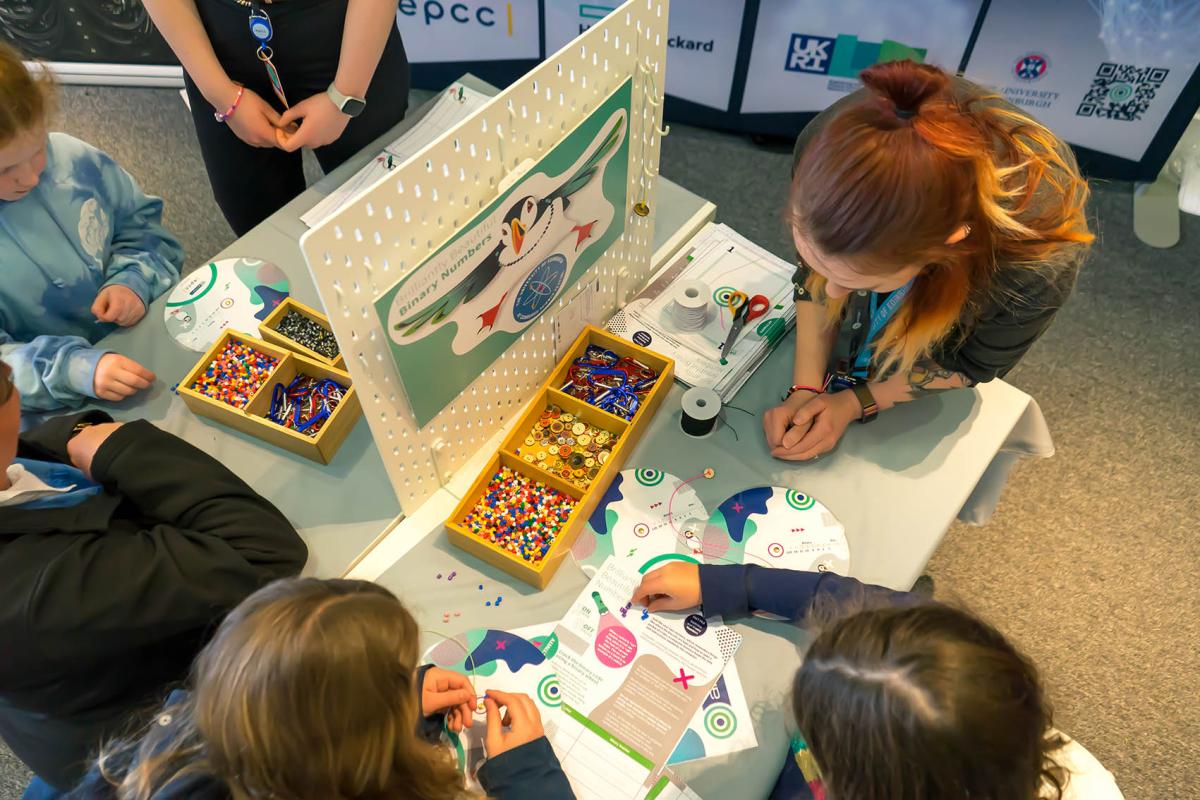
Finally, at several levels higher we had old hardware including a board from ARCHER2, the current UK supercomputing service, which is hosted by EPCC. We also had several displays that showed part of the system at actual size.
The Spintronics kit, which was new to us and procured on a recommendation from the Robotics lab at the Bayes Centre, proved to be a big hit. One might say too big, with some kids needing to be peeled off to go and experience other activities.
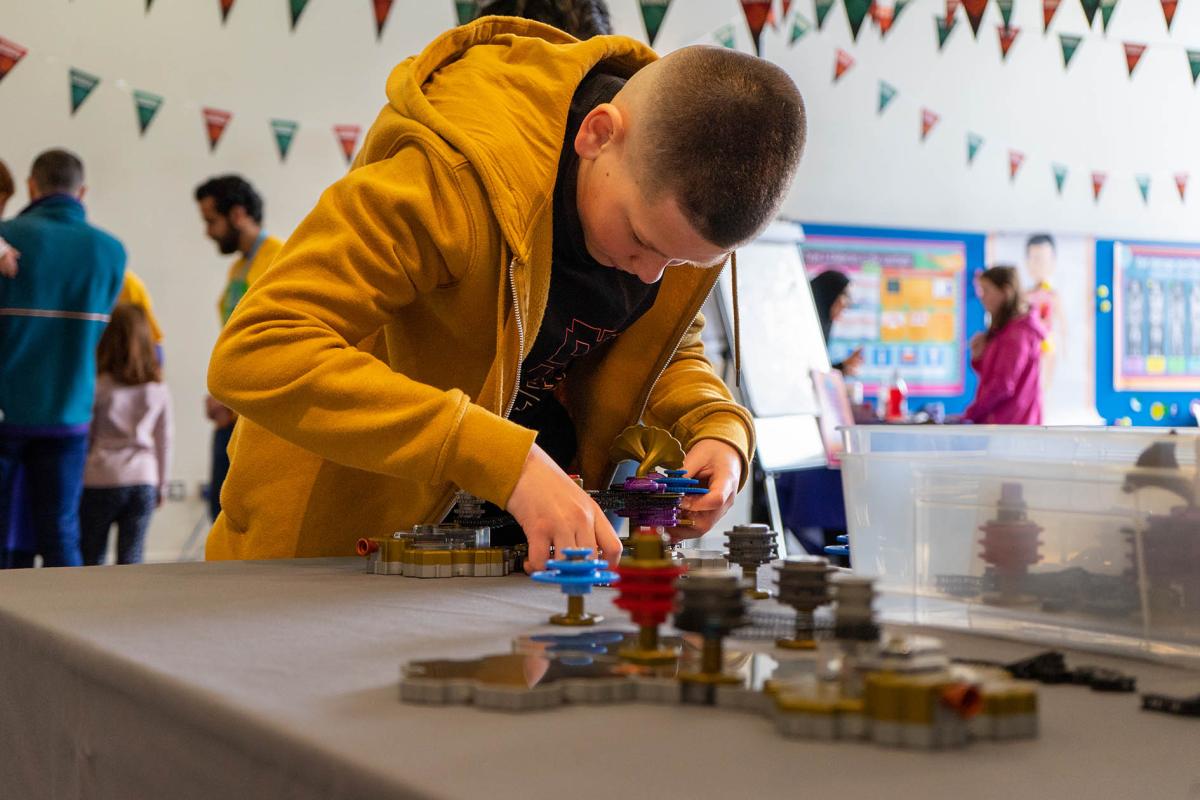
The binary bracelets activity was also very popular with a possibly different demographic. It did take time to explain the underlying concepts: the binary number system, the ASCII encoding, and the actual construction of the bracelets, which was usually based on the ASCII encoded initial letters of their name and surname. I am not sure whether all the information was generally absorbed, but the fact that everyone could take their own bracelet home with them will have formed a talking point and enforced the lesson – the pretty bracelet carries an embedded message.
Anecdotally, I think the bracelet activity appealed marginally more to girls, but plenty of boys and adults went away with their own bracelets too. Even EPCC staff could not be stopped from taking their own bracelets!
The boards from past supercomputers that EPCC has hosted, plus a bit from the current ARCHER2 service, brought together all the strands of the activities. We also had the innards of an old desktop for comparison, although, from talking to the attendees, most families seem to rely on tablets or laptops rather than desktops to meet their computer requirements.
Having a festival so near to the Bayes Centre allowed a lot of EPCC staff to participate. More importantly, we provided a compelling narrative which I hope will inspire some of the young minds we encountered to be involved in science-based activities in their future careers.
ARCHER2 public engagement programme
EPCC’s activities at the Edinburgh Science Festival were funded and supported by the ARCHER2 national HPC service, which is managed by EPCC.
The aim of the ARCHER2 public engagement programme is to demonstrate to people across the UK the relevance and benefits of high performance computing (HPC). In particular it works to convince young people that STEM (science, technology, engineering and mathematics) careers are open to them. To achieve this we do the following:
- Generate impact at large science festivals around the UK, including the Big Bang Fair and New Scientist Live
- Attend multiple smaller (local) events such as school visits and careers events
- Provide online materials accessible on demand
- Offer work experience for high school students.
All ARCHER2’s outreach activities are carried out by experienced staff who work in technical, managerial, or training roles in HPC or data science. Staff are drawn from a range of scientific disciplines, and work on a wide range of projects at EPCC, so can offer a range of perspectives on STEM careers.
https://www.archer2.ac.uk/community/outreach/
Further information
Image credits: EPCC stand and bracelet by Mario Antonioletti; all others by Ludovic Farine.
